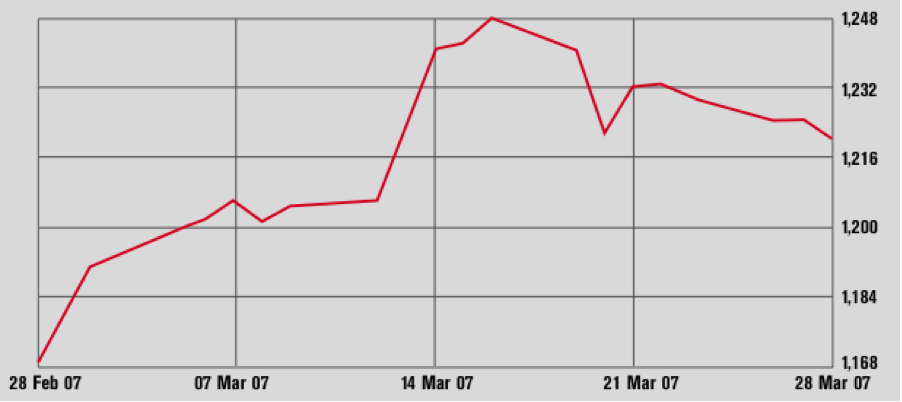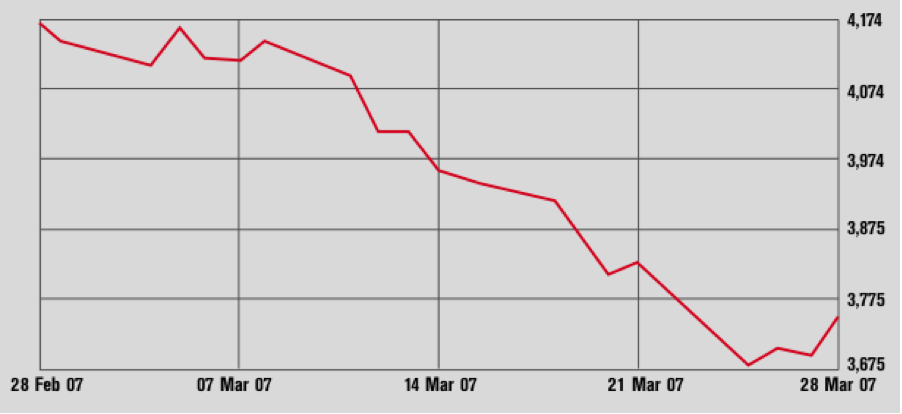Here in Washington, the winners of the 2006 mid-termelections had just started to enjoy their spoils when the2008 presidential campaign already started to heat up. Nosooner had Nancy Pelosi finished her tour of the Hamadeyasouq than the Clinton campaign decided to make Syria part ofthe campaign platform.
See, former President Bill Clinton used to say that themajor impediment he faced in solving the Israeli-Arabdispute was Yasser Arafat. But now with Hilary on thecampaign trail, that’s all in the past. Peace in the MiddleEast is easy, as long as you have the right person in theWhite House—and a proper knowledge of history. Clinton saysthe peace process was derailed for one reason alone—thebullet that killed Yitzhak Rabin.
“The assassination of Rabin killed the whole process,”Clinton told the London-based pan-Arab daily, Ash-SharqAl-Awsat. “This one bullet not only killed Yitzhak Rabin butthe whole process that we were working on.”
That’s right—it was a Jewish extremist who ruined Oslo.Never mind the second intifada and Hamas’s genocidalcampaign against Jews. And Chairman Arafat had nothing to dowith sabotaging the peace process. If it weren’t for thatone Jewish bullet we even would have had peace betweenIsrael and Syria. And we still can—“It will take 35 minutesto resolve the problem between Israel and Syria,” saysClinton. 35 minutes! Wow—I wonder which Americanpresidential candidate could pull that stunt off?
Ah, peace. It is true that the “P word” is certain to strikea Pavlovian chord among the Americans, who are particularlyprone to Middle Eastern fantasies, but it’s not just WhiteHouse hopefuls putting a tired Middle Eastern nag throughher pointless paces. Consider the curious case of Ibrahim“Abe” Suleiman, a Syrian-born naturalized American citizenfor close to half a century now. In April, Suleiman traveledto the Knesset to explain how an Israeli-Syrian peace dealwas possible within six months. Ok, that time frame isconsiderably longer than a half hour and change, but giventhat the Israelis and Syrians both think Suleiman’s talkingout of his hat, six months is nothing short of miraculous.
The US press has followed the case with interest, albeitconfusedly so. For instance, there’s the New York Times,which for well over half a year now has waged a relentlesscampaign demanding the Bush administration “engage”Damascus. The space they’ve devoted to l’affair Suleiman hasbeen for all practical purposes to explain that Syria’sspecial envoy seems to represent no official position inDamascus and has found no confidence in Jerusalem. In otherwords, it is a story about a non-story.
On the other hand, the anti-Syrian Kuwaiti daily al-Siyassahhas reported that Suleiman is the brother of former regimeaffiliate Bajhat Suleiman, once believed to be involved inthe assassination of Rafiq al-Hariri—a fact that wouldsuggest that “Abe” is indeed well connected in Damascus.
However, much more troubling than any genuine relationshipSuleiman may have to the Asad regime is the prospect thathis role as mediator will generate its own momentum andcause chaos throughout the region.
We have already discussed why Washington is apt to embraceeven the most dubious prophet of peace and concord, butother regional interests have their own reasons as well.
Israeli officials are no doubt looking a little more than ayear into the future and wondering whether a possibleDemocrat in the White House will demand concessions fromJerusalem that the Bush administration did not. In thatcase, it would be wise for Israel to keep an apparentlysincere fool like Suleiman close at hand rather than sufferthe vicious Arabist inanities of, say, Walid Moallem orFarouq al-Shara. And even if the new White House is asfriendly to Israel as the present one, the Jewish state hasits own internal politics to worry about. However improbablepeace may seem, Olmert or Netanyahu or whoever winds up inthe running for Prime Minister is going to need some sort ofroad map or peace process to keep voters interested. Whoknows but that the Syria track may seem more appealing thana deal with the Hamas-controlled PA.
Damascus of course would like nothing more than to be tiedup in a peace process—while it also threatens war againstIsrael to liberate the Golan, a prospect even more fantasticthan Clinton’s 35 minutes to peace. The Asad regime isterrified of the international tribunal charged with handingdown indictments in the Hariri murder. So far, Damascus hasallegedly assassinated Lebanese citizens and backed a waragainst Israel in its attempts to forestall the tribunal,but the train is steadily and surely approaching thestation. With so much riding on a “peace process,” no matterhow phony, who would dare punish Damascus for the blood ithas shed not just in Lebanon, but throughout the region? Andafter all, isn’t that how the regime has been selling itscase to the international community for some time now? See,we don’t really want to kill people. We want to be part ofthe rest of the world, we want to come in from the cold, wewant a deal. And isn’t it a shame that until we get what wewant we will have to keep killing people—and just so wedon’t have to keep killing people?
Lee Smith is a Hudson Institute visiting fellow and reporter on Middle East affairs.
















